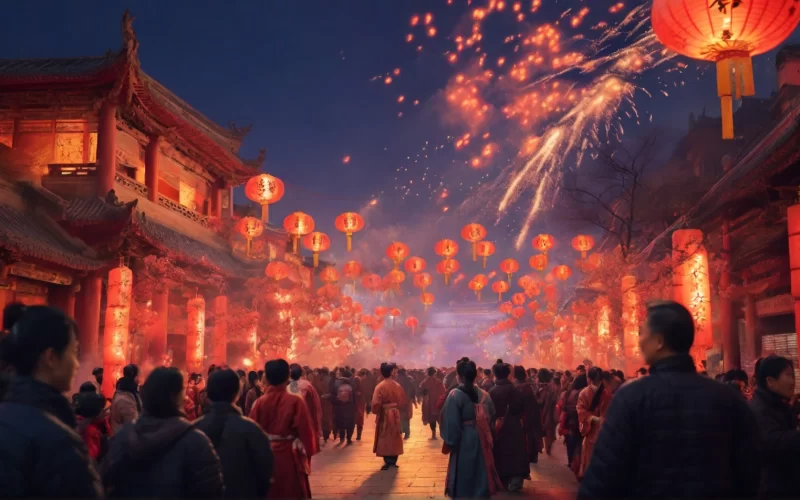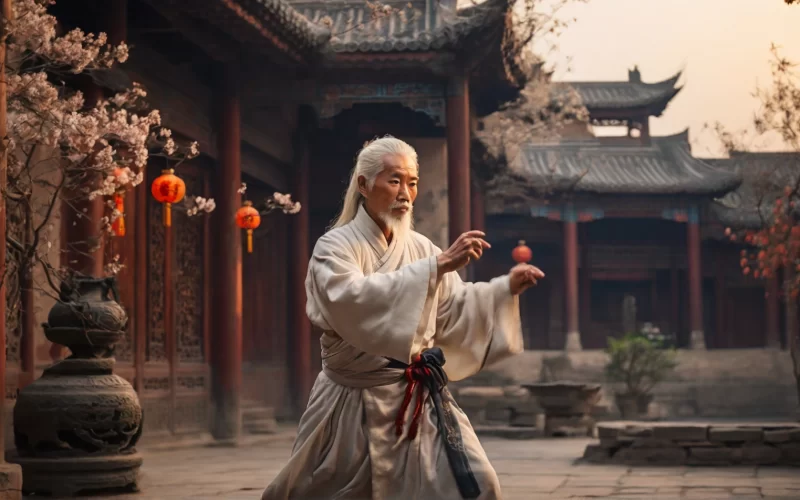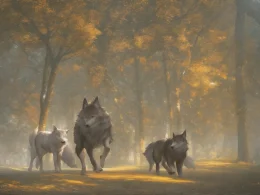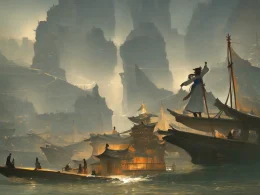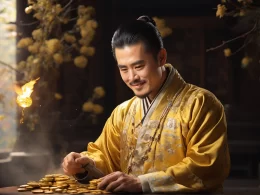Idiom Explanation:
Like sitting on a felt with pins in it, describe the mind as restless and fidgety.
Pronunciation:
如火如荼
rú huǒ rú tú
Origin:
春秋·左丘明《国语·吴语》:万人以为方阵,皆白裳,白旗,素甲,白羽之缯,望之如荼。……左军亦如之,皆赤裳,赤旟,丹甲,朱羽之矰,望之如火。
Story:
At the end of the Spring and Autumn Period, King Fucha of Wu conquered Yue, Lu and Qi in succession and was so ambitious that he continued his march to the northwest with the intention of conquering Jin in one go.
But at this time, King Goujian of Yue copied the back way of the Wu king. He led his army to Gusu (Suzhou), the capital of Wu, and sent his men to occupy the Huai River, cutting off the king of Wu's retreat. When King Fucha of Wu heard the news, he felt a blow to the head. In shock, he immediately summoned his officials and generals to discuss countermeasures. They said that retreating now was tantamount to losing a battle and being beaten at both ends; if he could defeat Jin, he would be the hegemon among the vassal states and it would not be too late to go back to deal with King Goujian of Yue.
The big idea had been decided, the most urgent task was to conquer Jin as soon as possible. After considering it again, the king of Wu decided to win by surprise. In the evening of that day, the king of Wu gave the order. All the soldiers were well fed and the horses were well foraged. From the whole army, he picked out 30,000 elite soldiers and strong generals. Each 10,000 men formed a square formation, three squares in total. Each square is 100 people horizontally and vertically. At the head of each row was the military officer division. Every ten rows, that is, one thousand people, was in charge of a great officer. Each square formation was led by a general. The middle square with white helmets and white armor, white clothes, white banners and white bows and arrows was in the hands of the king of Wu himself and was called the middle army; the square on the left, with red helmets and red armor and red clothes; and the square on the right were all black. They set out at midnight and arrived at dawn only a mile away from the Jin army. At dawn, King Fucha himself sounded the gold and drums to give the order. 30,000 people shouted together, and the sound was like the sky and the earth breaking up, which alarmed all the lords who were present.
When the Jin army woke up from their dream, they were stunned to see the three formations of Wu's army and their power: the white formation was like a field full of white flowers; the red formation was like a burning flame; and the black formation was like an unfathomable sea. It was like an unfathomable sea. Finally, the Jin army was defeated.
The idiom of "如火如荼" comes from this story.
Similar Idioms:
- 方兴未艾
- 热火朝天






